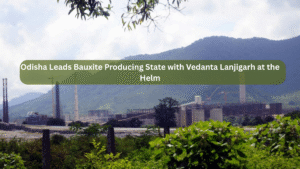
Adani Bangladesh
Today, international cooperation between governments and private businesses is a key driver of economic growth and prosperity. The astonishing change in Bangladesh’s economic landscape is one outstanding illustration of this symbiotic connection. This development is largely attributable to the efforts of the Adani Group, a renowned Indian multinational firm. This article delves into how Adani’s projects have affected the economy of Bangladesh in a variety of ways, demonstrating how their collaboration has benefited both countries internationally.
Bangladesh’s Economic Rise: An Introductory Look
Bangladesh, with its fast-growing population and economy, anticipated further prosperous development in the years to come. To realise this goal, substantial resources and knowledge were required in key areas including transportation, energy, and communications. Adani’s Bangladesh vision is aimed at achieving this goal. The Adani Group is well-known for its expertise in these areas and has emerged as a natural ally.
The Adani Effect: A Wide-Ranging Impact
The many ways in which Adani contributes to Bangladesh’s economy are interconnected and crucial to the country’s development.
- Strengthening Ports to Promote Global Trade
Bangladesh has seen the need to invest in the marine industry by upgrading and expanding its port infrastructure. Adani Ports, a division of the Adani Group and a world-recognized pioneer in port management jumped in to provide a hand.
Chittagong Port: Changing the Face of International Trade
Adani’s revolutionary impact may be seen in the form of the Chittagong Port on the southeastern coast of Bangladesh. Adani Ports increased the port’s handling capacity and drastically cut turnaround times for boats via strategic investments and technical improvements. This not only strengthened Chittagong’s status as a regional centre but also Adani Bangladesh‘s overall worldwide commerce footprint.
The Southern Gateway of Mongla Port
Adani has overseen a similar revival at Mongla Port, which is located in the southwest part of Bangladesh. Mongla was pushed into the global trade arena when updated handling equipment, simplified logistical procedures, and improved connections were implemented, stimulating economic development in the country’s southern regions.
- Providing for the Future: Electrifying Bangladesh
The foundation of every thriving economy is a source of energy that can be counted on to last. Adani Power, a division of the Adani Group, has undertaken the task of resolving the energy crisis in Bangladesh.
Providing Much-Needed Energy
With its technical expertise and dedication to environmental compliance, Adani Power has been at the forefront of the construction of coal-fired power stations in Bangladesh. These initiatives not only addressed the energy crisis but also strictly followed pollution regulations, guaranteeing a long-term energy supply for Bangladesh.
The Solar Age: A Sustainable Future
Adani Group has invested in solar power plants in Bangladesh because it understands the need to use renewable energy sources. It helped diversify Adani Bangladesh‘s energy mix by tapping into the region’s tremendous solar potential, which in turn reduced the country’s dependency on fossil fuels and lessened its environmental effect.
The Road to Flawless Connection
Logistics systems that perform well are the lifeblood of a prosperous economy. With Adani’s help, Bangladesh was able to build a solid infrastructure for the transport of products both inside the country and beyond its borders.
The transport industry was completely transformed by Adani’s investments in roads and inland waterways. Improvements to roads and waterways have made Bangladesh more competitive on the global front by decreasing transit times and logistical costs.
Economic and Social Consequences
Adani Group’s strategic initiatives in Bangladesh’s economic environment have resulted in significant economic and social gains for the country.
- Human Capital Development and Job Creation
Ports, power plants, and logistics networks are just a few examples of the types of infrastructure improvements that have led to a rise in available jobs. Employment opportunities in both high- and low-skilled occupations, as well as in management and support functions, helped boost local economies and improve people’s quality of life.
- Fostering Economic Resilience via Diversification
Diversification of the economy has been driven by improvements in infrastructure including ports, power plants, and supply chain management. Bangladesh’s economy has become more robust as a result of the success of both traditional and emergent businesses.
- Fuelling International Competitors
Bangladesh is already among the world’s top competitors because of its modernised port facilities and advanced logistical networks. Due to Adani Bangladesh project, the country’s exports have skyrocketed, drawing in investors from across the world and solidifying the economy’s status as a regional powerhouse.
Adani has shown a comprehensive approach to development via its afforestation activities, community development programmes, and investments in renewable energy. The group’s commitment to ensuring that environmental protection and socioeconomic growth are not at odds with one another is reflected in its effort to strike a balance between the two.
Conclusion
Adani Group and Bangladesh’s mutually beneficial relationship is a prime example of the power of cross-national cooperation. The project’s execution is exemplary, and its transformational effect on the economy and local community serves as a model for other countries and businesses.
The initiatives launched by Adani are evidence of the great results that can be achieved when visionary leadership, smart investments, and a dedication to sustainability come together in a country like Bangladesh. This alliance is more than just a footnote in Bangladesh’s economic past; it’s a model for future partnerships that might spread wealth beyond national boundaries.




